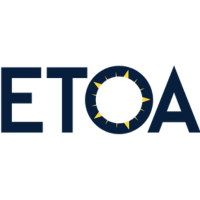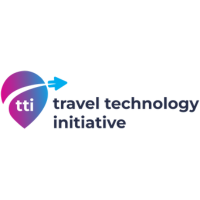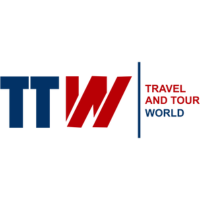Automation in Travel: Enhancing Customer Experience with Smart Solutions
)
- Published: 11 Mar 2025
- By: Jonathan Carter-Chapman, Marketing Director, Northstar Travel Group
- Topics: AI in Travel, Automation, Travel Management Software, Workflow Efficiency, Customer Experience
- Read Time: 6 minutes
Quick Summary
Automation is transforming the tourism industry, especially for travel management companies (TMCs) and travel agencies. From intelligent workflow tools and smart booking systems to end-to-end customer engagement and service-based pricing, automation technologies are helping travel businesses streamline repetitive tasks, increase operational efficiency, and enhance the overall travel experience for customers.
With AI and automation moving from buzzwords to business-critical tools, this article explores how leading technologies like Lokulus, Agentivity, and Penguin TMS are redefining the future of the tourism sector.
REGISTRATION NOW LIVE Book Your Stand
Travel Tech Show | 25-26 June 2025 | ExCeL London
Introduction
Innovation has always been the cornerstone of the travel and tourism sector. Today, the latest wave of automation technologies and artificial intelligence (AI) is rapidly reshaping both operational and customer-facing areas. From booking and reconciliation to service delivery and compliance, smart solutions are helping companies make informed decisions, minimise human error, and optimise processes for improved efficiency and cost saving.
In this blog, we explore the technologies leading this transformation—what they do, why they matter, and how they are setting new standards for a smarter, more responsive travel industry.
Automation: A Game-Changer for TMCs and Travel AgenciesBreaking Free from Legacy Models
For many travel management companies (TMCs), outdated commercial models based on transaction fees are no longer sustainable. In a service-first world, clients expect bespoke, responsive support—and they’re willing to pay for it. However, to justify this evolution, TMCs must leverage real-time data to provide transparency around the value they deliver.
Tools like Lokulus and Agentivity empower TMCs to track and analyse every client engagement, enabling data-driven decisions that support service-based pricing.
By automating routine tasks and using AI to allocate workloads based on staff expertise, these platforms reduce human intervention and boost operational efficiency. This results in better SLA compliance, enhanced customer interactions, and measurable improvements across the guest experience.
Smart Workflow Automation: Driving Operational Excellence
One of the most profound benefits of automation in travel and tourism is its ability to transform workflows. In an environment facing widespread staffing shortages, intelligent systems that assign tasks automatically are crucial.
Lokulus' AI workflow engine, seamlessly integrated with Agentivity’s travel data platform, enables the intelligent allocation of jobs based on consultant experience and availability. By automating repetitive tasks, teams can pre-empt service issues, reduce human error, and deliver superior service.
This kind of streamlined, intelligent task management not only improves response times but also drives cost saving by maximising the effectiveness of existing teams. As a result, agencies can operate more efficiently, scale services without proportionally increasing headcount, and offer an elevated travel experience to every client.
Penguin TMS: A Comprehensive Software Ecosystem for Travel Agencies
While Lokulus and Agentivity are enhancing TMCs, Penguin Travel Management Software is revolutionising automation for the broader tourism industry. With over 25 years of expertise and integration with more than 75 products, Penguin offers a cloud-based, modular platform designed to automate everything from CRM and bookings to reconciliation and compliance.
Key features driving automation include:
-
Multi-currency invoicing & language support for global operations
-
Automated reconciliation of payments, bank transactions, and supplier accounts
-
Built-in ATOL & ABTA compliance reporting
-
GDS and NDC integration for seamless data access
-
Automated communications via email and WhatsApp
-
DocuSign integration for rapid e-signature workflows
By automating financial operations and compliance reporting, Penguin not only reduces the burden of routine tasks but also helps travel businesses make better-informed decisions through real-time data insights.
Customer Experience at the Heart of Automation
While back-office improvements are vital, the biggest transformation automation delivers is in enhancing the guest experience. AI-powered engagement tools—such as smart inboxes, chatbots, and predictive prompts—allow travel providers to respond faster, personalise services, and improve satisfaction without needing additional human intervention.
With automation tracking all customer engagements and SLA compliance, travel agencies can exceed expectations while offering truly bespoke services. This increased visibility into the customer journey enables proactive service, enhances loyalty, and drives sustainable growth.
The Bigger Picture
According to PhocusWire’s 2024 Travel Tech Trends, automation technologies are now essential foundations of success in the travel and tourism sector. Key trends include:
-
Trip Stitching: AI integration that weaves disparate booking components into seamless journeys
-
Data Infrastructure: Building strategies around real-time data to enable personalised service
-
Cloud-Based Flexibility: Leveraging SaaS platforms for cost saving and operational agility
-
End-to-End Automation: Covering everything from booking and compliance to post-trip engagement
Major players like Travelport are investing heavily in automation in the travel industry, deploying AI agent tools to guide consultants in real time, enhancing service delivery and compliance.
Challenges on the Road to Full Automation
Despite clear benefits, barriers still exist:
-
High implementation costs
-
Data security and privacy concerns
-
Complex integration with legacy systems
Fortunately, modular SaaS models are making it easier to adopt automation incrementally. Starting small, demonstrating ROI, and scaling based on business needs is the recommended path for organisations aiming to harness automation for competitive advantage.
Conclusion: A Smarter, More Responsive Travel Industry
Automation in travel and tourism is no longer optional—it is a strategic necessity. From eliminating repetitive tasks and reducing human error to enabling faster, more data-driven decisions, smart automation technologies are driving significant change.
The winners of tomorrow’s tourism industry will be those who embrace automation not merely as a cost-saving tool but as a catalyst for delivering exceptional guest experiences, improving internal workflows, and achieving lasting, sustainable growth.
Further Reading
- PhocusWire – AI in Travel Management
- PhocusWire – 2024 Travel Tech Trends
- Lokulus + Agentivity: Travel Tech Show News
- Penguin Travel Management Software Overview

)
)
)
)
)
)
)
)
)
)
)
)
)
)
)
)
)
)
)





